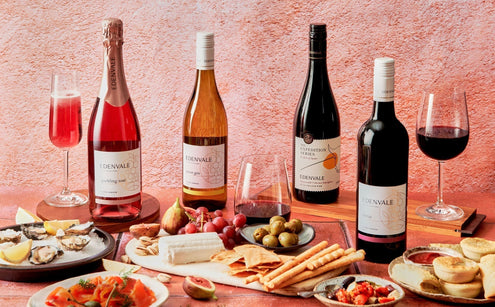If you have found yourself at the point where you’re feeling that it may be time to cut down on the amount of alcohol you drink, you are not alone.
More people are beginning to recognise there are many benefits to reducing their alcohol intake. Even small changes can have a significant impact on your physical and mental health, and is more sustainable than making big, life-altering ones. Many people find by tweaking their alcohol habits and reducing the risk and long-term negative consequences of alcohol, they are still able to enjoy a drink every now and then.
If you are thinking about limiting how much or how often you drink, a good place to start is to identify your motivations for wanting to change your habits. Are you trying to improve your health and overall wellbeing? Have you become too reliant on alcohol for a good time? Are you sick of waking up tired and hungover? Is alcohol affecting your relationships?
Once you know why you want to make a change, you can start developing a plan.
Set personal goals
If you are looking to make a change to your drinking habits, setting personal goals can be a helpful way to stay on track. Goals can provide a sense of purpose and help to keep you motivated. They can also assist with measuring your progress and monitoring your success.
When setting goals, it is imperative to make them realistic and achievable. You may want to start by setting small goals that you can easily reach. For example, decide how many days a week you want to drink and how many drinks you’ll have. Then also schedule in days where you don’t drink at all. As you achieve these goals, you can then start to set bigger ones. Remember to be patient and give yourself time to reach your goals
Keep track and count your drinks
Keeping track of your alcohol intake is an important step to drinking in moderation. It is also crucial to understand what the alcohol content is in each drink and what is deemed an acceptable intake. Keep in mind, you’ll want to keep track of how much you’re drinking in a day and over a week.
This may seem like a daunting task but there are many ways to make it easier. Keep a journal or log of your alcohol consumption, or you can use a smartphone app to track your drinks. Whatever method you choose, tracking your alcohol consumption can help you to drink more responsibly and avoid drinking too much.
Find alternatives to alcohol
It is often simpler to substitute a behaviour or habit with another alternative or different approach to dealing with situations where it is common to consume alcohol. This may be in the form of avoiding situations where excessive alcohol consumption may be involved, changing your approach to drinking by setting a new goal such as weight loss or improved fitness, or developing new strategies in relation to your consumption levels. This could be:It is often simpler to substitute a behaviour or habit with another alternative or different approach to dealing with situations where it is common to consume alcohol. This may be in the form of avoiding situations where excessive alcohol consumption may be involved, changing your approach to drinking by setting a new goal such as weight loss or improved fitness, or developing new strategies in relation to your consumption levels. This could be:
- drinking non-alcoholic drinks between alcoholic beverages
- setting yourself an alcohol-free schedule where you avoid drinking on certain days of the week, or
- looking at alcohol-free alternatives.
Avoid triggers
If your goal is to change the way you’re drinking, knowing your ‘triggers’ can be helpful. Why and when do you consume alcohol? Are there certain people or types of events and activities that trigger you to drink? Do you have easy access to alcohol at home?
Planning other social activities that do not involve alcohol is a good way to resist the urge to drink. Organise a catch up over coffee instead of at the pub and spend more time with friends who don’t drink. Similarly, making subtle changes at home such as stocking little to no alcohol or buying alcohol-removed varietals instead can also go a long way to keeping yourself in check and sticking to the plan.
Choose non-alcoholic drinks
As more and more people are looking to reduce their alcohol intake for either health or personal reasons, there has been a steady rise in the popularity of alcohol-free alternatives. From mocktails to alcohol-free beer and wine, there are now many healthier options available for those who want to avoid drinking.
Edenvale alcohol-removed wines contain the complexity and robust taste of traditional wine but with fewer calories and harmful effects. So, if you still really want to engage with the ritual of having a drink, try substituting with a non-alcoholic version of your preferred beverage, which can help to ease the transition.
Another great strategy is to alternate between alcoholic and non-alcoholic beverages or quench your thirst with a glass of water. Consider also if you really need another glass of alcohol or if you have reached your limit. Avoid drinking on an empty stomach, as hunger can make you consume more alcohol than you intended. Be mindful – check in with yourself before, during and after each drink, and take note of how you feel.
Changing your relationship with alcohol can take time and doesn’t necessarily have to involve making huge changes to your lifestyle. Rather, set yourself some realistic goals, take small steps and figure out what works best for you.
Edenvale can make taking time off drinking easier with our large range of delicious alcohol-removed beverages. Shop Edenvale online. Or find us in your local Coles, Woolworths, IGA, Dan Murphy’s, and from independent online retailers, supermarkets and bottle shops.




